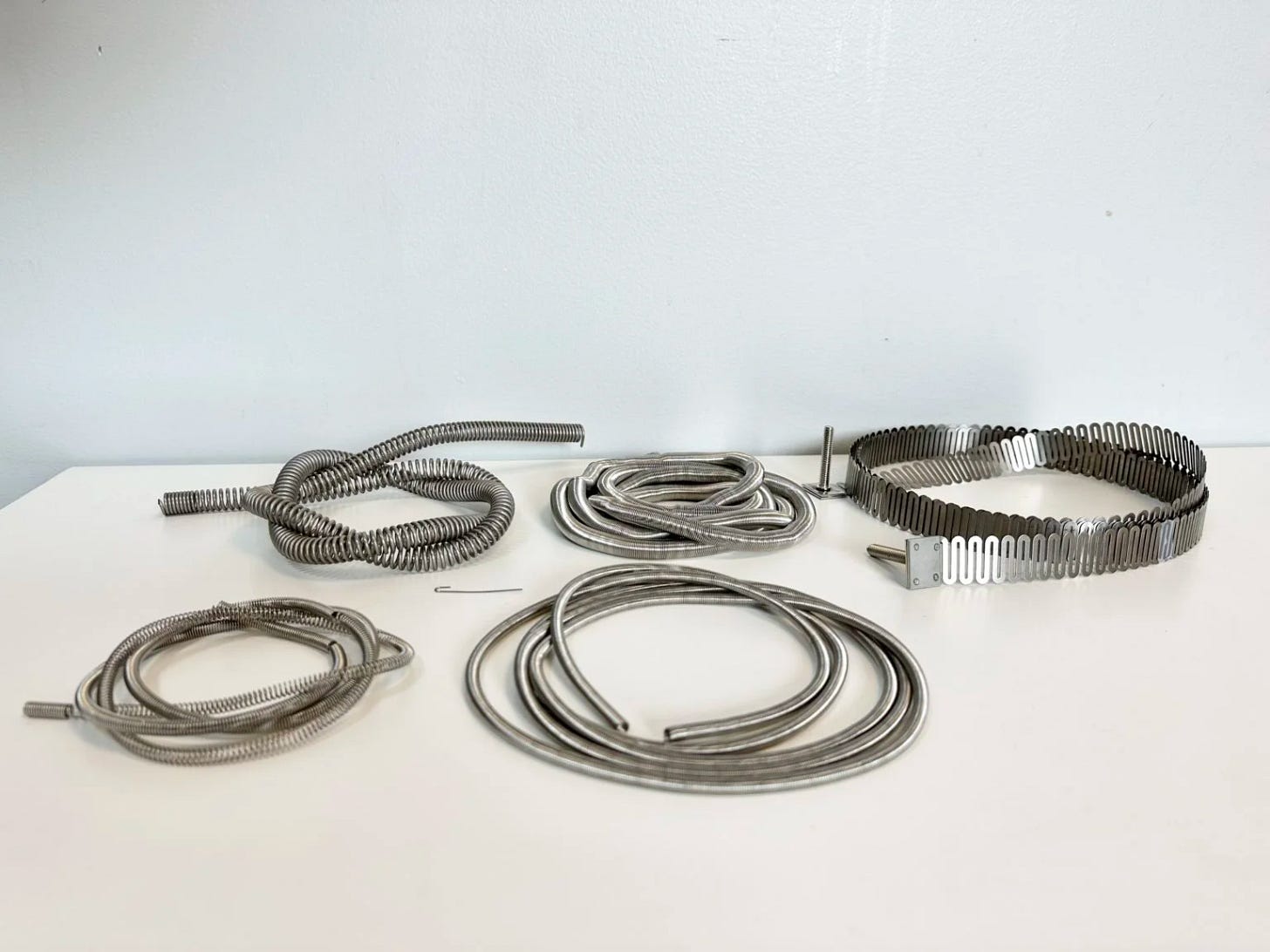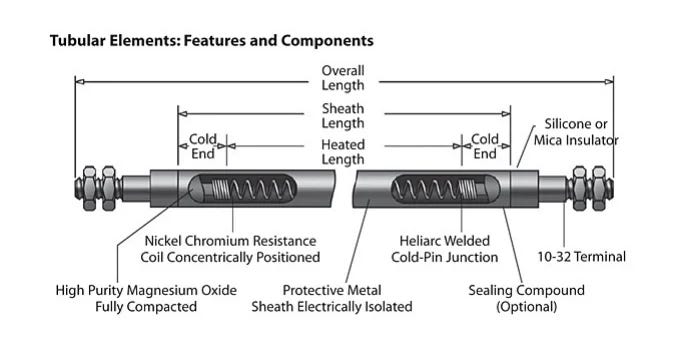Tubular Heater Manufacturers vs. Open Coil Heaters A Comparative Analysis!
In today's industrial landscape, efficient heating solutions are essential for various applications, from process heating to industrial machinery. Two popular options in the market are tubular heaters and open coil heaters. While both serve the purpose of heating, they have distinct features and functionalities that cater to different needs. In this article, we will delve into the intricacies of tubular heater manufacturers versus open coil heaters, conducting a comprehensive comparative analysis to help you make an informed decision.
Introduction to Tubular Heater Manufacturers and Open Coil Heaters
Understanding the Role of Tubular Heaters
Tubular heaters are versatile heating elements widely used in industrial processes, heating liquids, gasses, and solids. Their cylindrical shape allows for uniform heat distribution, making them suitable for various applications such as air heating, immersion heating, and radiant heating.
Explaining the Concept of Open Coil Heaters
Open coil heaters, also known as exposed coil heaters, consist of resistance wire wound into a coil shape. These heaters generate heat when an electric current passes through the coil. heaters are commonly used in applications where rapid heating or high temperatures are required, such as drying ovens, heat treating, and packaging equipment.
Design and Construction
Design Features of Tubular Heaters
Tubular heaters are typically constructed using a metal sheath, insulation material, and a resistance wire. The metal sheath protects the heating element from environmental factors and provides structural support. The insulation material ensures efficient heat transfer while minimizing heat loss.
Construction of Open Coil Heaters
Open coil heaters consist of resistance wire wound around a ceramic core or refractory material. The coil is then encased in a protective sheath, often made of stainless steel or Incoloy. This design allows for quick heat dissipation and high-temperature operation.
Heating Efficiency
Comparing Heating Efficiency
Tubular heaters are known for their excellent heating efficiency due to their uniform heat distribution and customizable design. They can maintain precise temperature control, making them suitable for applications requiring consistent heat output.
Factors Influencing Efficiency
The efficiency of heaters depends on factors such as coil spacing, wire gauge, and airflow. Proper design and installation are crucial to maximizing heat transfer and minimizing energy consumption.
Durability and Lifespan
Durability of Tubular Heaters
Tubular heaters are renowned for their durability and longevity. The robust construction and high-quality materials ensure reliable performance even in harsh operating conditions.
Lifespan of Open Coil Heaters
Open coil heaters may have a shorter lifespan compared to tubular heaters due to the exposed nature of the heating element. Factors such as corrosion, oxidation, and mechanical damage can affect the longevity of heaters.
Applications and Industries
Applications of Tubular Heaters
Tubular heaters find application in various industries, including food processing, automotive, chemical, and pharmaceutical. They are used for heating liquids in tanks, heating air in HVAC systems, and maintaining temperature in industrial processes.
Industries Using Open Coil Heaters
Open coil heaters are commonly employed in industries requiring rapid heating or high-temperature operation, such as plastics manufacturing, packaging, and aerospace. Their ability to generate intense heat quickly makes them ideal for specialized applications.
Cost Analysis
Initial Cost of Installation
Tubular heaters may have a higher initial cost of installation compared to heaters due to their design complexity and customization options. However, the long-term benefits in terms of efficiency and durability often outweigh the initial investment.
Long-Term Cost Implications
When considering the total cost of ownership, including maintenance and energy consumption, tubular heaters may offer better value over the lifespan of the equipment. Their energy-efficient design and minimal maintenance requirements contribute to cost savings over time.
Safety Considerations
Safety Features of Tubular Heaters
Tubular heaters are equipped with safety features such as temperature sensors, thermal fuses, and overheat protection. These mechanisms ensure safe operation and prevent overheating or electrical hazards.
Safety Concerns with Open Coil Heaters
Open coil heaters pose certain safety concerns due to the exposed heating element. There is a risk of burns, electrical shock, and fire hazards if proper precautions are not taken during installation and operation.
Conclusion
In conclusion, the choice between tubular heaters and heaters depends on specific heating requirements, industry standards, and budget considerations. Tubular heaters offer superior heating efficiency, durability, and customization options, making them ideal for a wide range of applications. heaters excel in rapid heating and high-temperature environments but may require more maintenance and safety precautions. By understanding the differences between these heating solutions and evaluating their pros and cons, businesses can make informed decisions to optimize their heating systems.






